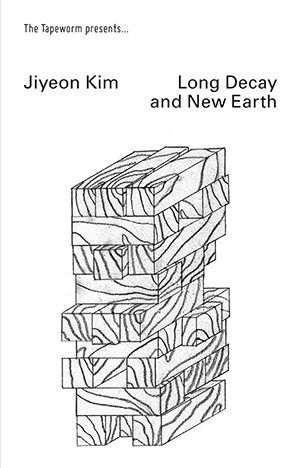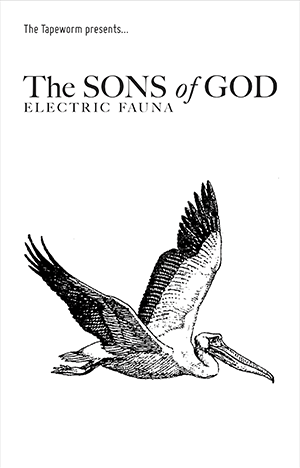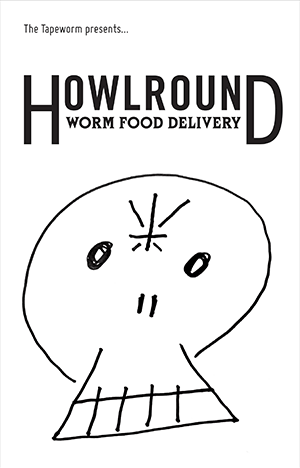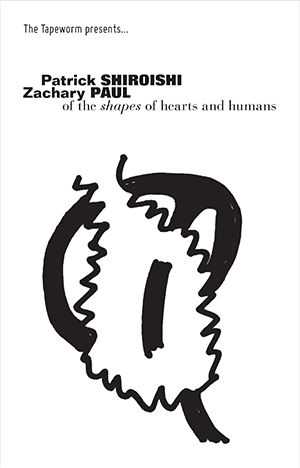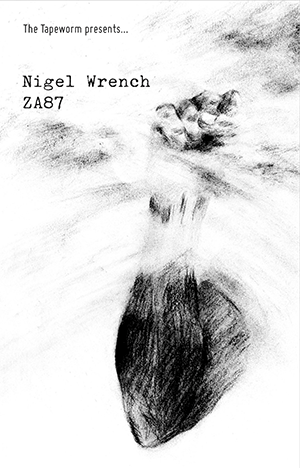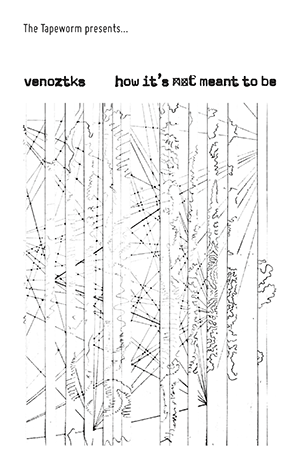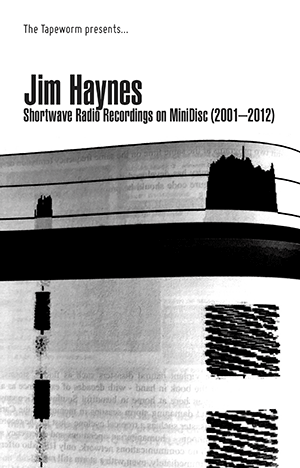TTW#129 – Jiyeon Kim – Long Decay and New Earth
Cassette only – limited edition of 100 copies
Buy on Bandcamp
Artists edition with black shell in an edition of 75 copies – not for sale
A: Rehearsal, 28 December 2019
B: Performance, 29 December 2019
Composed, performed and recorded by Jiyeon Kim. Rehearsal space: Jeokdo, Seoul. Performance venue: Cafe Unplugged, Seoul. Illustration: Lim Jin-kwang.
Jiyeon Kim writes – “This cassette is a document of a performance and its rehearsal, in Seoul, December 2019. The piece performed was a “decomposition” of a previous cassette release of mine, “piano mixtape”. For this live show I employed two distinct techniques.
Firstly, I took piano decay resonances, broken melodies, mechanical noises and magnetic hiss from “piano mixtape” on the fly and recorded them on separate buffers of an 8-track digital sampler. By modulating time and pitch of those samples, I mixed and played them without a master clock. Through overlapping various looped samples, micro patterns would arise organically.
Secondly, I overdubbed the original piano pieces repeatedly to deform and fade their sounds. Cassette tapes and tape players are not just a data storage medium, but also an analogue musical instrument in themselves. They have their own sound characteristics and unique means of manipulation. My digital sampler provided me with further compositional possibilities.
I do not consider these processes to be “destructive”, but instead something more organic – decaying sound sources seeding and propagating new landscapes.” – Jiyeon Kim, Seoul, South Korea, 11 March 2020.
Biography
Jiyeon Kim is Seoul-based musician and sound artist. Over the past decade she has devoted her time to developing a vocabulary based on field recordings and format-specific sound making, with close-listening deeply embedded in her practice.
As a musician, she integrates field recordings, acoustic piano and electronics with modern composition, sampling and improvisation techniques. She is also interested in the use of audio playback technology and data formats as instruments. As a sound artist, she presents sound installations, interdisciplinary performances and writings based on her listening experiences and her reflections on them.
She is a member of artist duo Weather Report who are based on Jeju island, Seoul, and who explore the medium of live streaming for remote listening and network performance practices. She also scored the documentary “Kim Gun” (2019).
She has performed at Cafe Oto (UK), Ausland (Germany) and Stazione di Topolò (Italy), and several local experimental live events in Seoul. Her audio works have been broadcast on Resonance.fm, NTS, KDVS and more. She has participated in artist residencies at Portobesebo (Italy), MoKs (Estonia) and Culture Space Yang (Jeju Island, Korea), and is part of the curated Touch Mentorship programme. Her listening practices are documented in “Experimental Music Since 1970” by Jennie Gottschalk (Bloomsbury, 2016).
Reviews
ATTN:Magazine (UK):
The two sides of Long Decay And New Earth document the rehearsal of a piece on 28th December 2019 and its performance on the 29th. The source material comes from Jiyeon Kim’s piano mixtape, which was released under her 11 moniker last year. Before even pressing play, this premise brings with it a flock of contradictory ideas around transience, legitimacy, documentation and origin. By presenting the rehearsal and the performance side-by-side and releasing them, the very notions of rehearsal and performance are collapsed – the rehearsal accrues an audience and thus ceases to be mere practice, while the performance loses the physical room and real-time execution that characterise it as a performance in the first place. The original songs on piano mixtape were mostly recorded digitally before being replanted to cassette, only to then be sent through an eight-track digital sampler for the purposes of this new record, augmented through processes such as backmasking and pitch adjustment, as well as being overdubbed repeatedly on tape until degradation started to occur. And what significance should be prescribed to the decision to release this album under a real name as opposed to an alias, thus implying a translation process involving two identities rather than an act of self-remixing? The lines between analogue and digital, then and now, music and medium, self and pseudonym…all are brought to futility as Jiyeon Kim folds the two halves together. Analogue is digital, then is now, music is medium, self is pseudonym.
And finally, pressing play: snippets of piano appear like scribbled figures upon a splattered canvas of cassette interference. In the process of chopping and looping, whole notes are often severed – string resonance flickers mid-flow and wobbles upon the ever-thinning fidelity of the magnetic tape. Ironically, the extent of Jiyeon Kim’s manipulative handiwork – the transit back-and-forth between analogue and digital, the overdubbing, the sampling – generates a natural flow that conceals the presence of a human player. Occasionally it adopts the effect of raindrops travelling together upon a car window, quivering and criss-crossing as they go, all moving at different speeds yet united by a common medley of vehicle vibration and aerodynamics; a ballet of fragile forms and atmospheric incident. The repeated overdubbing also renders unclear the distinction between the instrument and cassette, as crackles gather force and cease to be a background detail, exhibiting as much undulating intricacy as found in the piano. As easy as it is to feel spun into wonderful conceptual contradictions by the album’s premise (particularly as the rehearsal and performance begin to emerge as very distinct pieces, albeit sharing the same precise duration), the sound invites the listener to quieten the mind and simply attend to these pieces. As much as I find myself questioning the theoretical fabric of Long Decay And New Earth, the idling beauty of this record demands nothing of me.
Further. (UK):
Kim’s tape captures two iterations of the same piece from December last year, both being as similar as they are different. The source for each version – a rehearsal and then a performance the following day – was a cassette, Piano Mixtape, released under the alias 11 earlier in the year. Piano Mixtape contained various sketches, recorded using a range of devices over a three year period.
For both iterations captured on Long Decay And New Earth, Kim processed the piano recordings using two techniques – one where she sampled and looped various resonances, fragments and tape hiss from the original Piano Mixtape, and another where she repeatedly dubbed and overdubbed the original recordings on cassette to ‘age’ and effectively degrade the quality of the original piano motifs. Given that processing, the resulting ‘decomposition’ – to use Kim’s word – could have sounded harsh and uncomfortable, but the opposite is true. These pieces retain a certain fragility, the interventions Kim applying adding a nostalgia and charm through imperfection, like playing a broken 78 shellac disc in a particularly poignant dream.
hhv-mag.com (DE):
Top 20 Tapes, 2020 – Das Kassetten-Label The Tapeworm hat sich auf Musik spezialisiert, die dermaßen randständig ist, dass manchmal kaum jemand mitbekommt, wie präzise darin die Zukunft vorausgesagt wird. Beweisstück 1: »Long Decay And New Earth« von Jiyeon Kim stellt zwei exakt gleich lange Performances der Künstlerin nebeneinander, die eine vor recht wenig und die andere ganz ohne Publikum – mehr 2020 geht kaum. Auch weil Kims faserigen Dekompositionen sprudelnder Piano-Musik gleichermaßen nervenberuhigend wie unheimlich sind. [Kristoffer Cornils]


